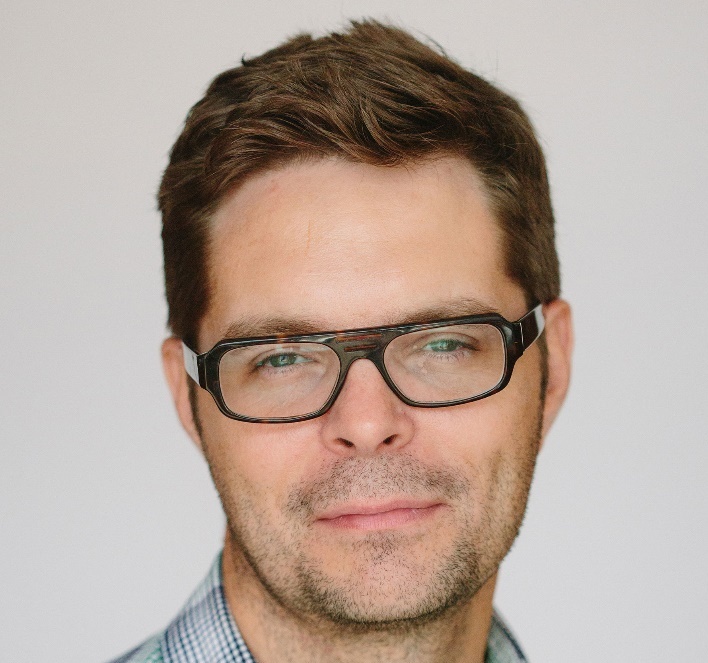Innovation at the Speed of Change: Exploring Knight’s Tech Innovation Portfolio
SAVE THE DATE: April 13, 1:30-3:00 p.m. EST. Like this blog series? Attend our Inside Innovation Funding event in person in San Francisco, or virtually via livestream in San Francisco.
It’s become a truism to say that the world is changing, and that the pace and scale of change is ever accelerating. “It’s not just technology that’s moving at an exponential pace, but change itself;” write Joi Ito and Jeff Howe in Whiplash.
 Even the world of grantmaking, often criticized for its slow pace, is adapting to these rhythms. For example, last month, we at Knight Foundation helped launch a fund on ethics and artificial intelligence. The fund itself came together quickly over the course of a few weeks, and we plan to announce our first grants in the coming weeks, but more on that later. As I talk to people involved with the creation of the tools, a single note keeps coming up: the technology is developing faster than we had anticipated even a year ago.
Even the world of grantmaking, often criticized for its slow pace, is adapting to these rhythms. For example, last month, we at Knight Foundation helped launch a fund on ethics and artificial intelligence. The fund itself came together quickly over the course of a few weeks, and we plan to announce our first grants in the coming weeks, but more on that later. As I talk to people involved with the creation of the tools, a single note keeps coming up: the technology is developing faster than we had anticipated even a year ago.
The recent news of Libratus, an artificial intelligence created at Carnegie Mellon that defeated four champion humans in Texas Hold ‘Em poker, demonstrated that “the best AI’s ability to do strategic reasoning with imperfect information has now surpassed that of the best humans,” said Libratus’s co-creator Tuomas Sandholm. This feat of reasoning, coming on the heels of Google Deep Mind’s victory over the world’s preeminent Go player last year, came much earlier than most in the field had anticipated.
These developments are happening at a rate that outpaces our ability to process them, and yet it’s becoming the new normal. Millions of us are now living with smart personal assistants like Amazon Echo and Google Home in our living rooms and Internet-connected televisions and thermostats. As a society, we’re still not sure just how to handle these devices, as the debate over how to use audio evidence collected by Amazon Echo during a 2015 murder and the hacking of unsecure home appliances to take down much of the Internet last fall demonstrated.
Our inability to appreciate the depth of the change even as we experience it reminds me of how the French military struggled to adjust to modern warfare at the outset of World War I. As described by Barbara W. Tuchman in her classic The Guns of August, French generals prepared for German tanks and aerial bombings by sharpening their swords and donning their traditional brightly colored uniforms adorned with plumage. Even after the battle was joined, and a decade after the emergence of modern warfare in the Russo-Japanese War, the French leaders stuck to their old tactics. Tuchman wrote, “The impetus of existing plans is always stronger than the impulse to change.”
Part of our mission at Knight Foundation is to ensure that the civic institutions upon which our democracy depends—libraries, museums, news organizations, cities—do not follow in the footsteps of those 1914 French commanders. How do new and old civic enterprises sustain themselves as traditional fundraising approaches like mass mailings hold less appeal for new donors? How do organizations adjust their cultures to attract and retain talent and audiences who bring with them different expectations and needs from their predecessors?
Given this new world of accelerating technological advancement, and the expectation that all of our work at Knight will be impacted by future advancements, our grantmaking will focus on the ways in which digital technologies could impact our fields. Knight has always been interested in technology’s potential for strengthening the ways in which Americans learn about and participate in community. In the ’80s, the Knight brothers’ company, Knight Ridder, invested in and experimented with early interactive tools such as Viewtron and Dialog Information Services. A decade ago, we built on this interest by creating the Knight News Challenge in an attempt to better understand the potential of the Internet for transforming journalism. This year, we’re focused on two topics:
- We are co-founders of a fund on the ethical aspects of artificial intelligence. AI has shifted from a future prospect to a present reality, and has the potential to impact every aspect of society. That’s why we’ve helped to craft the Ethics and Governance of Artificial Intelligence Fund to take an applied, multidisciplinary approach to AI, exploring its potential benefits and ill effects.
- As part of the NetGain Partnership, a collaboration between five foundations to explore public interest issues around new technologies, we are exploring how connected devices (the Internet of Things) might impact cities. In the coming months, we’ll be making some grants designed to strengthen cities through technology.
The change we have been living through is only going to increase—adjusting our work incrementally isn’t going to cut it. To thrive, we as individuals and institutions need to develop our comfort with insecurity, with failing, with risk, and be ready to pursue routes we may not anticipate.
This post is part of the Funding Innovation series, produced by Foundation Center's Glasspockets and GrantCraft, and underwritten by the Vodafone Foundation. The series explores funding practices and trends at the intersection of problem-solving, technology, and design. Please contribute your comments on each post and share the series using #fundinginnovation. To view more posts in this series click here.

